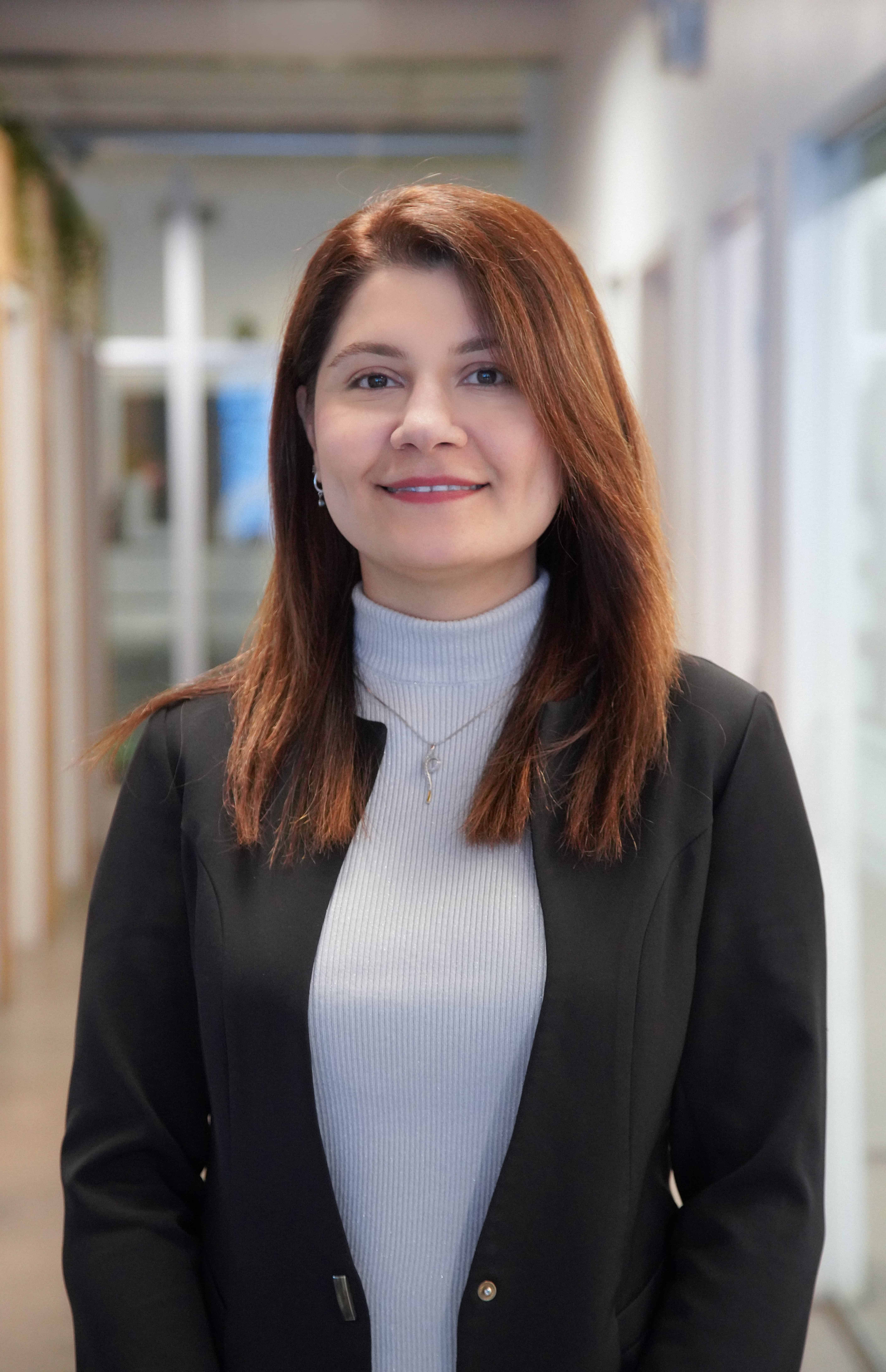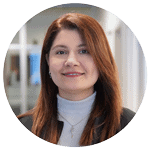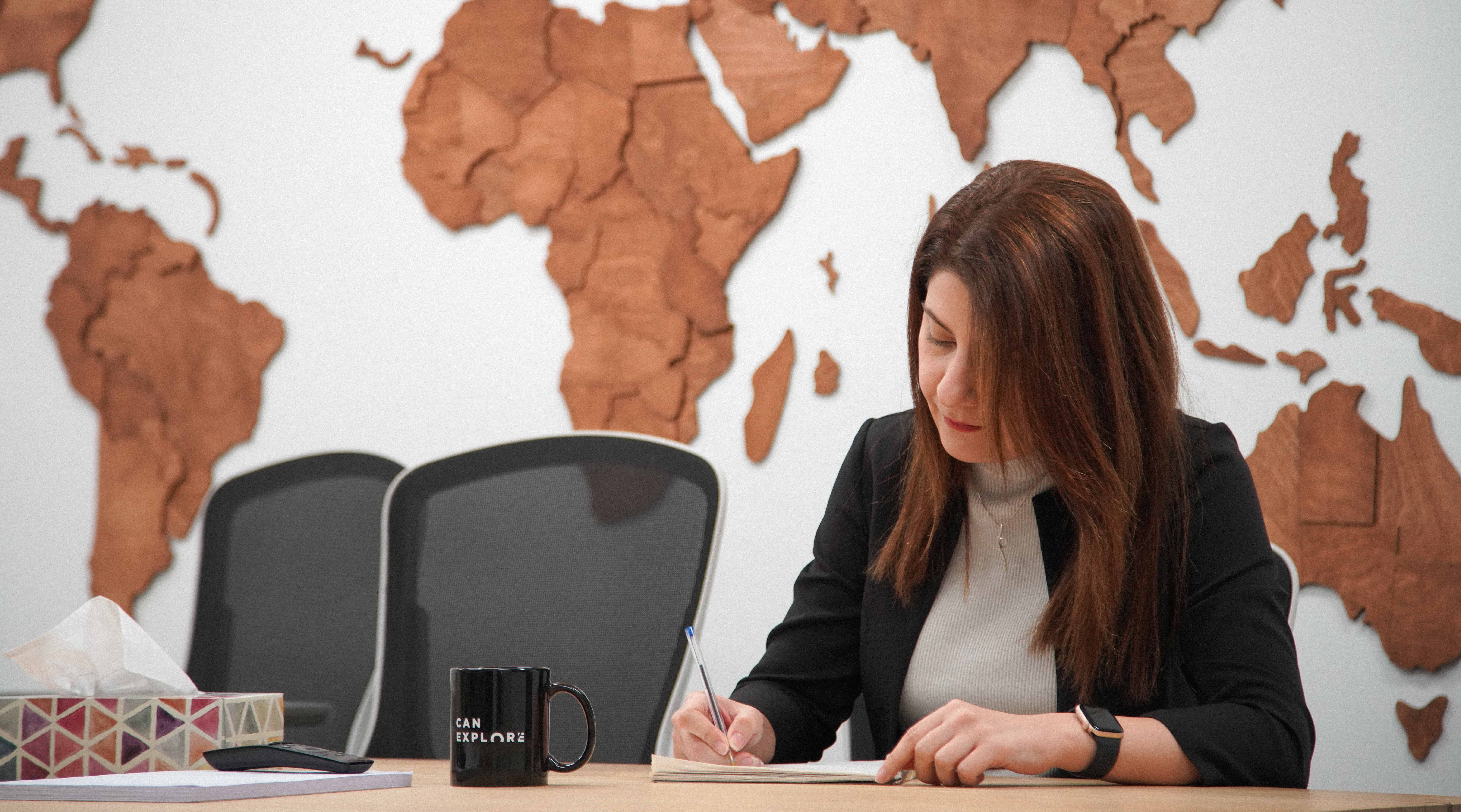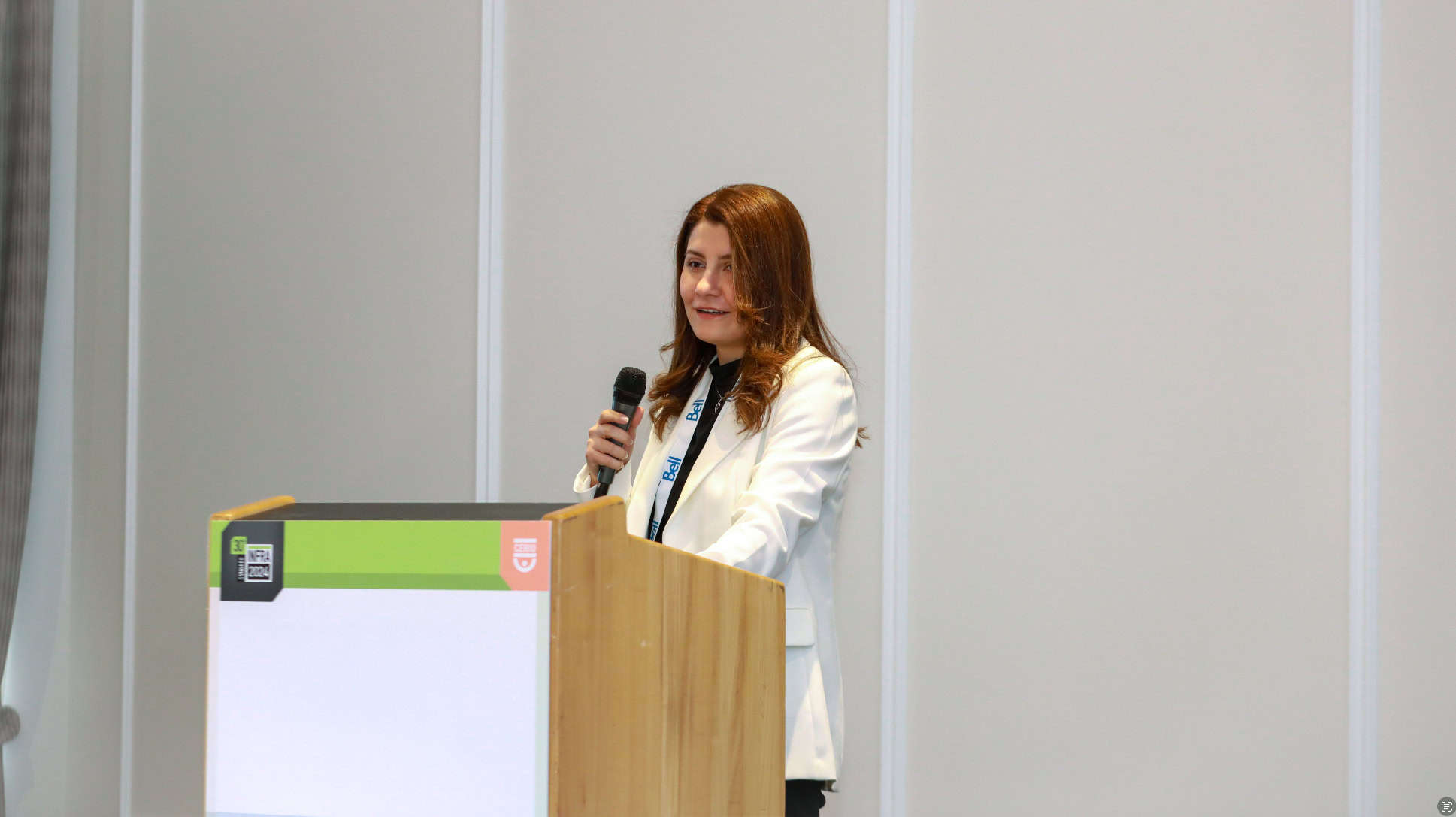In Canada, the demand for engineers has been steadily increasing over the past few years, offering women a unique opportunity to strengthen their presence in the engineering field. However, while women are now more numerous than men in most university programs, engineering still doesn’t attract many of them. Despite slow but steady progress over the last decade—both in terms of engineering program enrollments and integration into the workforce—female engineers remain a distinct minority compared to their male counterparts.
The engineering sector in Canada, however, claims to be ready to welcome more women, making this the perfect time for them to leave their mark on this evolving industry. At Can-Explore, we have the privilege of counting exceptional female talents among our team, such as Mahnoush, PhD in water engineering who joined us in the spring of 2024. To better understand her background and aspirations, our writer Jonatan sat down with her for an interview.
Hello Mahnoush! First, thank you for your time today. I know it’s peak season at Can-Explore right now. I’d like to start by learning a bit more about you. Could you tell me about your professional and academic background?
Hello Jonatan, it’s my pleasure! So, I started by doing a bachelor’s in water and wastewater engineering. After my degree, I did some internships to get a better sense of the professional environment. I then pursued a master’s in environmental engineering, where my project focused on optimizing the resilience of drinking water distribution systems. I eventually came to Université Laval for a PhD in water engineering, where I specifically worked on optimizing water quality and distribution systems in the city of Quebec. I started working for Can-Explore right after that.
That’s an impressive path Mahnoush, congratulations! I’m curious, how is the water quality in Quebec City? It’s one of the oldest cities in North America—does that pose a nightmare for a water engineer?
No, it’s actually quite good (laughs)! Of course, there’s room for improvement, but overall, it’s great! When I studied the water distribution in Quebec City, I saw metal pipes that were over 120 years old, and I wondered how they could still be working—it’s pretty impressive! They’ve certainly done maintenance, like installing new pipes inside the old ones with modern materials, but it’s really fun for me to work here. Let’s just say it’s a unique city that brings great challenges.

Good news! It’s reassuring to know that our old systems are managed by such qualified people. Did you always know you wanted to be an engineer, Mahnoush? Was there a moment that led you into this field?
Not really. When I was young, I was always very curious and loved solving problems. I was a kid who asked a lot of questions! I was also really good at math, so for me, the decision wasn’t hard to make.
We know that often, parents try to guide us toward what they think is best for us, out of kindness. We also know that there are still biases about the role of women in engineering. Did your parents encourage you anyway to pursue this path?
Yes, my parents always supported and encouraged me, especially my mother. I think that played a big role in my journey to my PhD. They’ve always respected my decisions and encouraged me to follow my heart.
I suppose having people around you who support you makes a huge difference. On my side, I think it’s much harder to progress alone.
Oh yes, completely. I think some of my successes are due to those people who supported me, the people who understood me, the friends who encouraged me to move to a new country even though it made things harder for them. But they understand and love you, so they support you anyway. I wish the same for everyone—it really made a huge difference for me.

”The truth is, I really enjoy my work here. It’s not just about engineering, but also about friendship, language, and Quebec culture.”
Can-Explore is quite flexible with working hours—do you feel the company gives you the freedom to visit family and friends?
Yes, if I wanted to, I could go almost anytime, as long as it doesn’t affect my work. But I don’t use that privilege much right now. The truth is, I really enjoy my work here. It’s not just about engineering, but also about friendship, language, and Quebec culture. It’s a professional environment that makes me want to learn more just by being here and communicating with people. But yes, it’s reassuring to know that if something happens with family or friends, I could just go back without it being complicated.
I can understand how reassuring that must feel, considering the distance. In your previous work experiences, was it as flexible?
Unfortunately, no, especially before the COVID crisis, flexibility wasn’t really accepted. Even flexible hours weren’t truly accepted. I think it’s much more pleasant now, and Can-Explore does a great job at that level, especially in winter! I’m not used to your snowstorms! I can’t drive in 4 feet of snow—it stresses me out so much (laughs)! I don’t understand how you do it!

Mahnoush at work in Can-Explore’s offices in Quebec City.
Oh yes, I completely understand (laughs)! I think we’ve gotten used to it, even though I don’t feel like I’m getting better at it over time! If I go back to your education, did you have any mentors who made a difference in your journey? Were there any role models who kept you going?
I can’t give you just one name, but in my life, I’ve always had short-term and long-term goals. I’ve always been able to find people who helped me achieve those goals, and for whom those goals were beneficial. I try to follow them, learn from them, and ask them questions, like some of my math professors. They played an important role in my journey to my PhD. Otherwise, my colleagues here help me a lot every day. I learn from them all the time, and it’s very enriching for me.
You say you had goals that kept you motivated—can you give me an example of a goal you’ve achieved that you’re particularly proud of?
When my articles were published during my studies. I worked really hard and I ended up having 4 articles published in total! I’m really proud of that, especially the last one, which was quite demanding. It was an article that allowed me to go to England to develop my optimization model for drinking water quality. England is renowned for its expertise in water engineering, and I was really proud to make a good impression there. I was even interviewed for their website! It was very rewarding to talk to people who really know exactly what I’m talking about. I could go straight to the point.
Congratulations Mahnoush! That’s truly impressive to me! I’d like to ask you what a typical workday looks like for a PhD in water engineering?
For me, working at Can-Explore means being part of a dynamic company with a great atmosphere. People cooperate very well and answer your questions because yes, I still ask a lot of questions (laughs). I feel very supported by the people here. Teamwork is a reality, not just an idea. There’s no solo mission where everyone works alone in their corner. We work together, and if we need help, we’re encouraged to ask for it.

Mahnoush explaining the results of her thesis at the INFRA conference of CERIU.
What does ingenuity mean to you? How do you apply it in your work?
It’s about making the right decision at the right time. I think for all engineers, and even for everyone, you need a certain level of ingenuity. For example, in the issue I’m currently facing with inspecting a pipeline network, we need to figure out which problems are important and which are less so, so we don’t spend the same amount of time on each one. Everything has a cost, and that’s also part of my job. With an unlimited budget, it would be much easier to solve all the problems! But the question is always how we can get the best results with the least amount of money. That’s where we need to be the most ingenious.
I’d like to discuss gender stereotypes in the field. Do you feel like you have to put in extra effort compared to your male colleagues in terms of your credibility?
I’ve definitely felt less credible next to a man yes, especially during my first internships after my bachelor’s degree. I felt like my lack of experience combined with being a woman in the industry led to some stereotypes. I had to question myself because I loved my studies, but I didn’t like the atmosphere. I initially thought I could become a teacher and stay in the academic sphere of the field, because I had never experienced that kind of situation at school—it was mostly on the field and with the older generation. When they saw me, let’s just say it surprised them. They made jokes about it, and it made me uncomfortable.
Luckily, during my master’s and PhD, I never encountered that again. When I joined Can-Explore right after, I also noticed a big change compared to 10 years ago. It’s a young company that also hires a lot of young people from the new generation, and they don’t see me as “a woman in the field.” They just see me as an engineer in the field.
That fills me with hope and pride to hear that. It’s very good news. I’d like to ask you, Mahnoush, what do you love most about your work?
I studied this field for a long time in school, but now everything I do is tangible! My math skills help me solve real problems, and everything I’ve learned is useful! It’s very rewarding, and I’m grateful that Can-Explore is giving me this opportunity. Also, let’s just say I’m a fairly reserved person—I like the amount of interaction I have each day. It’s enough so that I don’t feel alone, but not so much that it affects me negatively.

”Of course, it’s not always easy to find a balance between your career and personal life, but I believe it’s absolutely possible, especially if you have supportive people around you and choose them wisely.”
That’s a very honest answer—I think many readers will relate to your words. Can you share a story or success from your work or studies that makes you particularly proud?
I’m really proud of finishing my PhD on time during the pandemic. To complete it, I needed to analyze a lot of samples, but all the labs were closed during my first year. The problem is that if you don’t finish your PhD on time, opportunities and funding start to dwindle. That caused me a lot of anxiety because we had to repeat the sampling a year later, and I had to condense all the remaining work. It was also quite tough to complete this degree in another country while being isolated at home, but everything worked out, and I’m very proud of myself. It was a lot of pressure!
Congratulations Mahnoush! I’m really happy for you, and I think you have every reason to be proud of your journey! Thank you so much for your answers. We’re already nearing the end of my questions, but before we wrap up, I’d like to discuss the balance between professional and personal or family life. Is that something that concerns you?
Of course, it’s not always easy to find a balance between your career and personal life, but I believe it’s absolutely possible, especially if you have supportive people around you and choose them wisely. As for me, I don’t have children yet, but it’s a project my partner and I have for the future! I’m not too concerned about balancing my personal life and work. My main concerns are more about the idea of giving birth itself! (laughs)
What would you say to young female students who are hesitant to pursue a career in engineering?
I’d like to tell them: have a plan, follow your heart, and most importantly, don’t be afraid. If you love it, go for it. The field is ready for women. If men are confident in themselves, then trust yourself too. You’ll see that everyone else will have confidence in you as well.
Mahnoush, thank you for your words and your time. I wish you all the best in every aspect of your work and personal life.
Thank you, Jonatan, it was a real pleasure! I wish you the same.
Discover more inspiring stories!
Don’t miss our other articles that highlight the talents and innovations at Can-Explore. Click here to dive into our article library and stay updated on our exciting initiatives!

